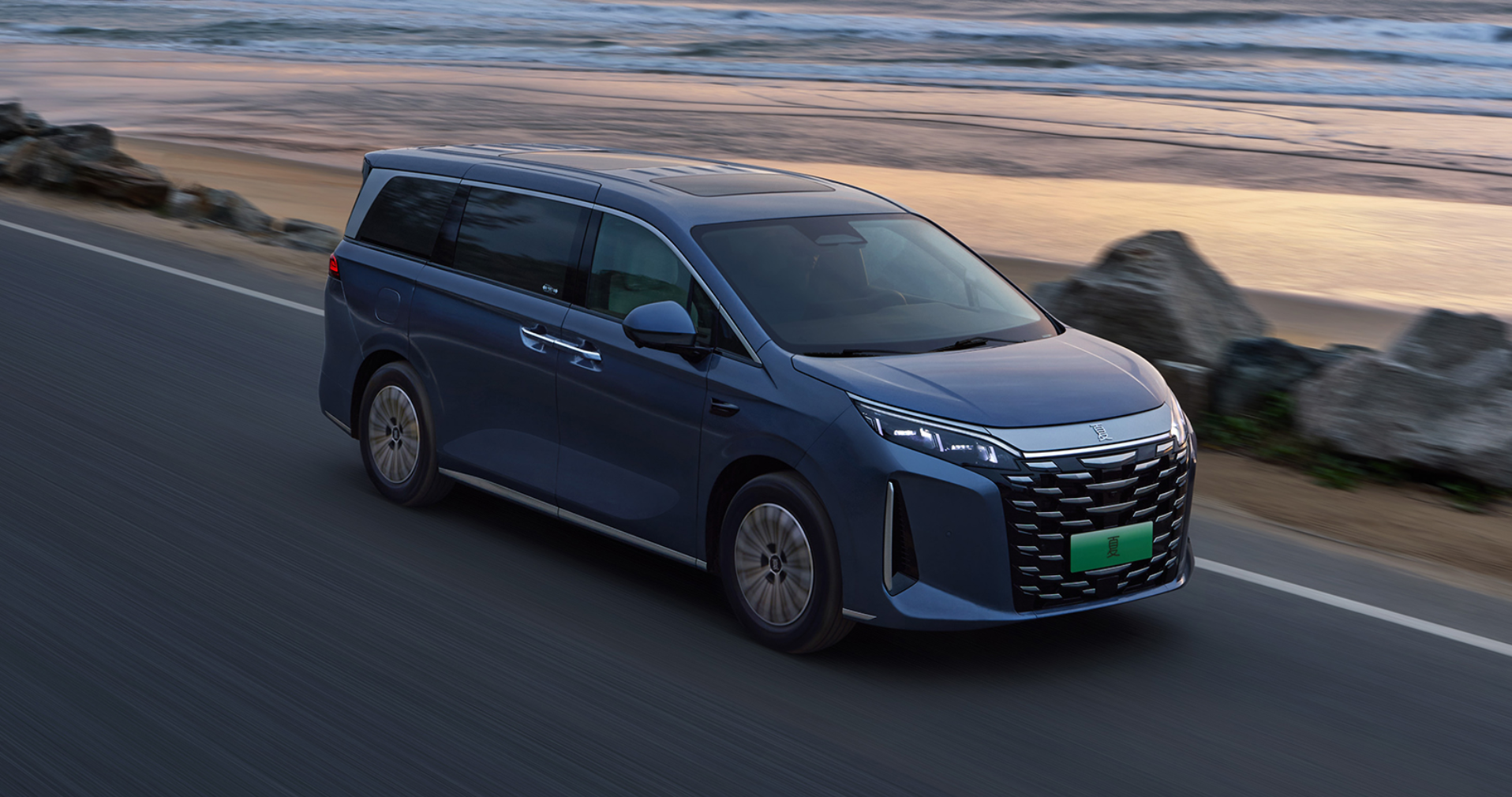2025 BYD King in Brazil!

2025 BYD King in Brazil
Brazil, a country known for its vibrant culture, passionate football, and the mighty Amazon, is now witnessing a new revolution on its streets. This revolution is quiet, clean, and driven by technology.
At the forefront is BYD, a Chinese company that has become a global leader in electric vehicles (EVs). In Brazil, BYD has introduced its prestigious "King" series, a family of cars named after powerful Chinese imperial dynasties. These vehicles are not just changing how Brazilians drive; they are changing what they expect from a car.
This article will explore the different models in the King series available in Brazil, compare their strengths and weaknesses, discuss their prices, and uncover the reasons behind their surging popularity.

Meet the Royal Family: BYD's King Models in Brazil
BYD's strategy is to offer a car for every need and budget. The King series in Brazil currently features four key members, each with a distinct personality.
1. BYD Yuan Plus (known as Atto 3 in some markets)
The Adventurous Compact SUV: The Yuan Plus is BYD's best-selling EV in many markets, and Brazil is no exception.
It's designed for urban families who also love weekend getaways.
Design: It looks modern and sporty. But the real magic is inside! The interior is incredibly unique, with guitar-string door accents, a gear shifter that looks like a workout machine handle, and a rotating central screen. It’s fun, youthful, and full of character.
Performance: With a range of over 420 km (about 260 miles) on a single charge, it’s perfect for city commuting and short trips. It's quick, quiet, and very easy to drive.
2. BYD Tang
The Powerful and Spacious Flagship SUV: The Tang is the big brother of the family. It’s a large, 7-seater SUV designed for those who need space, power, and premium features.
Design: It boasts a bold, imposing look that commands respect. The interior is luxurious, with high-quality materials, plenty of leather, and a massive screen. It’s a car that says you have arrived.
Performance: The Tang is a performance beast. Its all-wheel-drive system can accelerate from 0 to 100 km/h in just 4.6 seconds – faster than many sports cars! Its electric range is also impressive, at around 400 km (250 miles), making it a powerful and practical family vehicle.
3. BYD Han
The Sophisticated Executive Sedan: In a market dominated by SUVs, the Han makes a strong case for the luxury sedan. It’s BYD's flagship car, aimed at business executives and those who appreciate elegance and technology.
Design: The Han is sleek, low, and aerodynamic. It has a "Dragon Face" design language that makes it look both elegant and aggressive. The cabin is a tech-lover's dream, focused on comfort and a silent, smooth ride.
Performance: Like the Tang, the Han is incredibly fast. It offers blistering acceleration and a long range, combining the comfort of a luxury car with the thrill of a sports car.
4. BYD Song Plus
The Balanced Family SUV: Sitting between the Yuan Plus and the Tang, the Song Plus is the perfect middle ground. It's a mid-size SUV that offers more space than the Yuan without the premium price tag of the Tang.
Design: It has a conservative yet handsome design that appeals to a wide audience. The interior is spacious, practical, and filled with technology, making it an ideal family car.
Performance: It provides a comfortable ride, a good electric range, and just the right amount of power for daily use. It’s the safe, smart, and reliable choice for many Brazilian families.

Comparing the King: Strengths and Weaknesses
Let's see how these models stack up against each other.
|
Model |
Strengths (The "Pros") |
Weaknesses (The "Cons") |
|
Yuan Plus |
- Most affordable in the lineup. |
- Can feel a bit small for large families. |
|
Tang |
- Extremely spacious (7 seats). |
- Most expensive BYD model. |
|
Han |
- Best-in-class performance and luxury. |
- Sedan body style is less popular than SUVs in Brazil. |
|
Song Plus |
- Excellent balance of space, comfort, and price. |
- Not as exciting or unique as the Yuan or Han. |

The Price of Royalty: How Much Do They Cost in Brazil?
It's important to remember that EVs in Brazil are still considered premium products due to import taxes and the cost of new technology. Prices are approximate and can change.
BYD Yuan Plus: Starting from around R$ 150,000 to R$ 170,000.
BYD Song Plus: Starting from around R$ 200,000 to R$ 230,000.
BYD Tang: Starting from around R$ 350,000 to R$ 400,000.
BYD Han: Starting from around R$ 350,000 to R$ 400,000.
While these prices are high, they are competitive with other premium electric and hybrid vehicles in the Brazilian market.

Why is the BYD King Series So Popular in Brazil?
The success of BYD in Brazil is no accident. It's the result of a perfect mix of smart products, good timing, and a strong strategy.
1. Superior Technology and "Blade Battery": BYD’s biggest advantage is its Blade Battery. Unlike traditional lithium-ion batteries, it is incredibly safe and unlikely to catch fire, even if damaged. This safety message is very powerful for families. Furthermore, the batteries are long-lasting, giving buyers peace of mind.
2. Solving the Fuel Cost Problem: Brazil has some of the highest gasoline prices in the world. Charging an electric car, especially at home, costs a fraction of what it takes to fill a gas tank. For Brazilians tired of spending so much on fuel, EVs like the BYD King series offer a very attractive financial solution in the long run.
3. A Green Statement: Brazilians are increasingly environmentally conscious. Driving an electric car is a powerful way to reduce one's carbon footprint and contribute to cleaner air in cities like São Paulo.
Owning a BYD is not just a purchase; for many, it's a statement about caring for the planet.
4. High-Tech and Premium Feel: BYD cars are packed with technology that rivals, and often surpasses, European and American brands.
The large rotating screens, premium sound systems, advanced driver-assistance features, and over-the-air software updates make the cars feel like gadgets from the future. This appeals greatly to Brazil's growing, tech-savvy middle class.
5. Local Investment and Trust: BYD didn't just come to Brazil to sell cars. The company is building a large manufacturing plant in the state of Bahia. This commitment to local production creates jobs, boosts the economy, and shows Brazilians that BYD is here for the long term. It builds trust and helps reduce the "foreign brand" stigma.
6. The "Cool" Factor: Let's be honest, BYD cars are cool. They look modern, have unique features, and offer a silent, smooth driving experience that is very different from traditional combustion-engine cars.
In a status-conscious society, owning a cutting-edge BYD is a new symbol of success.

Conclusion
The BYD King series is more than just a line of cars in Brazil; it represents a shift towards a smarter, cleaner, and more technologically advanced future for the automotive industry.
From the fun and funky Yuan Plus to the mighty Tang and the elegant Han, there is a "royal" model for a variety of Brazilian drivers.
While the high prices remain a barrier for the average consumer, the long-term savings on fuel and maintenance, combined with the unparalleled technology, safety, and environmental benefits, make a strong case for investment.
As BYD's local factory begins operations, prices are expected to become more competitive, potentially bringing this electric King within reach of even more Brazilian families. The reign of BYD in Brazil has just begun, and it is poised to rule the roads for years to come.
If you are interested in the content of the article, please do not hesitate to contact us for more vehicle related information:YL Automobile

Relatated Reading:





